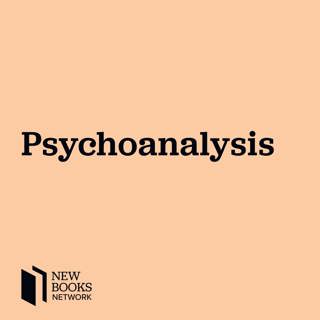
Sheldon George, "Trauma and Race: A Lacanian Study of African American Racial Identity" (Baylor UP, 2016)
Om avsnittet
In his book, Trauma and Race: A Lacanian Study of African American Racial Identity (Baylor UP, 2016), Sheldon George treats an old idea--that African Americans must transform their relationship to the history of slavery and to their identification with race—in an entirely new way. What follows is a quite truncated encapsulation of the book’s central argument which I will attempt if only because it struck me as a very original use of Lacanian thought. It also produced something I value very much: the development of fresh ideas for this psychoanalyst to ponder. George argues that owning human property, slaves, offered a surplus of "jouissance" to slave owners. Meanwhile the enslaved, denuded of family, of history and claims to nationality, were often valued solely for muscle mass and fecundity. Psychically emptied--seen only for their capacity to serve the master's needs, and I want to add, also emptying preemptively, and defensively their psychic lives, enslaved people were forbidden access to being, from which flows, following Lacan, crucial early fantasies of a wholeness that must be shattered if one is to become subjectivized. Fantasies of repletion provide a kind of protective “crested shield" with which to endure the rough first brush with the Symbolic. Living under a racist, white animating Master Signifier, slaves were often absent of the requisite psychic buffering with which to enter the Symbolic without undue suffering. Barred from the rudiments of being and lacking a constructive Master Signifier from which to generate vitalizing associations, the gaze of the enslaved was horrifyingly riveted to the “very lack that is masked in the Lacanian subject,” (p.21). Here George offers an apt description of what the sociologist of slavery, Orlando Patterson, refers to as "social death." Rather than celebrate the ways in which the burden of “double consciousness” aided African Americans in generating new linguistic vistas, we find no fan of Henry Louis Gates Jr’s “signifying monkey” here. George declares the project of "resignification" as not going far enough, and crucially, as missing the impact of the unconscious on language. Arguing against a powerful trend in African-American studies to value African-American racial identity as such, George boldly declares, “insistences on race perform a rite, an endless repeated act as a means to commemorate the not very memorable encounter that I call the trauma of slavery.” (p.42) How, George asks, can one have an identity based on insult, negation, and injury? Following his argument, the lure of racial pride loses its force majeur. Suddenly we see it as but papering over a potentially productive encounter with lack. And if it is lack that must be faced so as to open the door to a life driven by enlivening, elusive yet worthwhile desire, at what cost is it avoided? The idea of having love of the race and “the race man” become rather quickly tragic in George’s intellectual hands. Furthermore, embracing the narrative that “we come from slavery”, like Sethe in Toni Morrison's Beloved, (a novel George writes beautifully about in this text) one is quickly cornered, metonymically, by the suffocating relationship between race and enslavement. The need for the space to metaphorize is undeniable. To learn more about the work of Sheldon George, please go here. Learn more about your ad choices. Visit megaphone.fm/adchoices Support our show by becoming a premium member! }https://newbooksnetwork.supportingcast.fm/psychoanalysis
Senaste avsnitten

Adam Phillips, "On Giving Up" (FSG, 2024)

John Thomas Maier, "The Disabled Will: A Theory of Addiction" (Routledge, 2024)

A Psychoanalytic Overview of Racism in America

Adrian Johnston, "Infinite Greed: The Inhuman Selfishness of Capital" (Columbia UP, 2024)

Madman in the White House?

Jean Petrucelli et al., "Patriarchy and Its Discontents: Psychoanalytic Perspectives" (Routledge, 2022)

Linda Hopkins and Steven Kuchuck, eds., "Diary of a Fallen Psychoanalyst: The Work Books of Masud Khan 1967-1972" (Karnac, 2022)

Peter A. Levine, "An Autobiography of Trauma: A Healing Journey" (Park Street Press, 2024)

Betty Milan, "Analyzed by Lacan: A Personal Account" (Bloomsbury, 2023)

